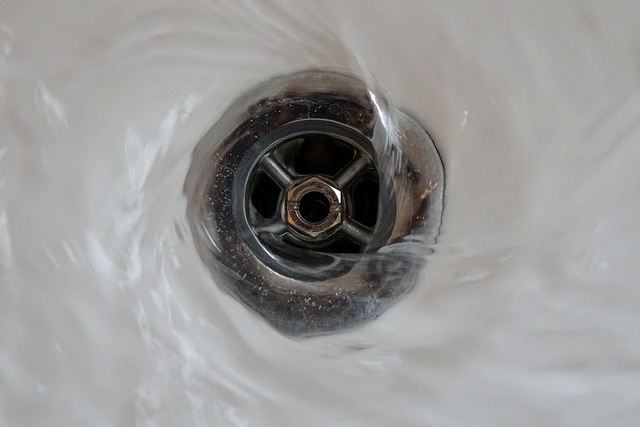The Essential Guide to Water Filters: Ensuring Clean and Safe Drinking Water at Home
In today's world, access to clean and safe drinking water is a top priority for many households. Water filters have become an increasingly popular solution to address concerns about water quality and purity. This comprehensive guide will explore the importance of water filtration, various types of water filters available, and how they can benefit your home and health.

A home water filter can effectively remove many of these impurities, providing you with cleaner, safer, and better-tasting water. This not only enhances your drinking experience but also contributes to your overall health and well-being. Moreover, using a water filter can be more cost-effective and environmentally friendly than relying on bottled water.
What Are the Different Types of Water Filtration Systems?
There are several types of water filtration systems available, each with its own advantages and suitable applications:
-
Activated Carbon Filters: These filters are effective at removing chlorine, sediment, and organic compounds, improving taste and odor.
-
Reverse Osmosis Systems: These systems use a semi-permeable membrane to remove a wide range of contaminants, including dissolved solids, heavy metals, and some microorganisms.
-
UV Purification: Ultraviolet light is used to neutralize harmful bacteria and viruses, making it an excellent addition to other filtration methods.
-
Ion Exchange Filters: These are particularly effective at softening hard water by removing minerals like calcium and magnesium.
-
Ceramic Filters: These filters have tiny pores that can trap sediment, bacteria, and other particles.
The choice of filtration system depends on your specific water quality issues, budget, and household needs.
How Does a Water Purification System Improve Drinking Water Quality?
A water purification system works by removing contaminants through various physical and chemical processes. Depending on the type of system, it can:
-
Remove chlorine and its byproducts, improving taste and odor
-
Filter out sediment, rust, and other particles
-
Eliminate harmful bacteria and viruses
-
Reduce heavy metals like lead and mercury
-
Remove pesticides and industrial chemicals
-
Soften water by removing excess minerals
By addressing these issues, a water purification system ensures that the water you drink and use for cooking is cleaner, safer, and more palatable. This can have a positive impact on your health, as well as the longevity of your plumbing fixtures and appliances.
What Factors Should You Consider When Choosing a Home Filtration System?
Selecting the right water filtration system for your home involves considering several factors:
-
Water Quality: Have your water tested to identify specific contaminants you need to address.
-
Filtration Capacity: Consider the volume of water your household uses daily.
-
Installation Requirements: Decide between point-of-use (e.g., under-sink) or whole-house systems.
-
Maintenance Needs: Factor in the cost and frequency of filter replacements.
-
Certification: Look for systems certified by reputable organizations like NSF International or the Water Quality Association.
-
Budget: Balance initial costs with long-term operational expenses.
How Do Different Water Filter Technologies Compare?
When choosing a water filter, it’s important to understand how different technologies compare in terms of effectiveness, cost, and maintenance requirements. Here’s a comparison of some popular water filter technologies:
| Technology | Contaminants Removed | Effectiveness | Initial Cost | Maintenance Cost |
|---|---|---|---|---|
| Activated Carbon | Chlorine, VOCs, Sediment | High | Low to Medium | Low |
| Reverse Osmosis | Wide range, including dissolved solids | Very High | High | Medium |
| UV Purification | Bacteria, Viruses | High (for microorganisms) | Medium | Low |
| Ion Exchange | Minerals (water softening) | High (for hard water) | Medium | Medium |
| Ceramic Filters | Sediment, Bacteria | Medium | Low | Low |
Prices, rates, or cost estimates mentioned in this article are based on the latest available information but may change over time. Independent research is advised before making financial decisions.
How Can You Maintain Your Water Filtration System for Optimal Performance?
Proper maintenance is crucial for ensuring your water filtration system continues to perform effectively:
-
Regular Filter Replacement: Follow the manufacturer’s recommendations for replacing filters. This is typically every 3-6 months for basic carbon filters and annually for more advanced systems.
-
Sanitization: For systems like reverse osmosis, periodic sanitization may be necessary to prevent bacterial growth.
-
Water Testing: Conduct regular water tests to ensure your system is effectively removing contaminants.
-
Professional Servicing: Consider having your system professionally serviced annually, especially for more complex installations.
-
Monitor Performance: Pay attention to changes in water flow, taste, or odor, as these may indicate maintenance is needed.
By following these maintenance steps, you can ensure your water filtration system continues to provide clean, safe drinking water for years to come.
In conclusion, investing in a home water filtration system is a wise decision for those looking to improve their water quality and overall health. By understanding the different types of filters available, considering your specific needs, and maintaining your system properly, you can enjoy the benefits of clean, safe, and great-tasting water right from your tap.






